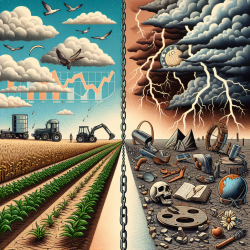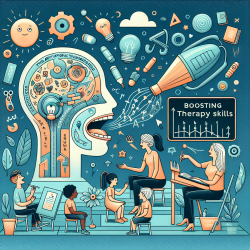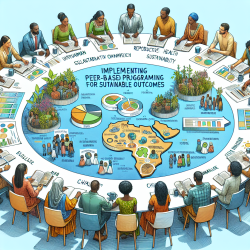Understanding the Connection Between Food Insecurity and Violence
As practitioners dedicated to improving child outcomes, it's crucial to understand the multifaceted challenges our clients face. A recent systematic review titled "Association of Food Insecurity With Multiple Forms of Interpersonal and Self-Directed Violence" sheds light on the significant link between food insecurity and various forms of violence, including intimate partner violence (IPV), suicidality, peer violence, bullying, and child maltreatment.
Key Findings from the Research
The systematic review analyzed 20 studies conducted in high-income countries, revealing that food insecurity is consistently associated with an increased likelihood of experiencing or perpetrating violence. This association was observed across different forms of violence, highlighting the critical need for interventions that address food insecurity as a primary prevention strategy.
- Intimate Partner Violence (IPV): Studies found that food insecurity is linked to both experiencing and perpetrating IPV, particularly among women.
- Suicidality: Food insecurity was associated with increased suicidal ideation and attempts, especially among youth and young adults.
- Peer Violence and Bullying: Children experiencing food insecurity were more likely to engage in or be victims of bullying and fighting at school.
- Child Maltreatment: Households facing food insecurity showed higher instances of children witnessing or experiencing violence at home.
Implications for Practitioners
These findings underscore the importance of integrating food security interventions into violence prevention programs. Practitioners can play a pivotal role by:
- Screening for food insecurity during assessments and providing referrals to food assistance programs.
- Collaborating with community organizations to co-locate violence prevention resources within food banks and pantries.
- Advocating for policies that expand access to food assistance programs like SNAP and WIC.
Encouraging Further Research
While the existing evidence is compelling, there are gaps that require further exploration. Future research should focus on:
- Establishing temporality between food insecurity and violence to better understand causal pathways.
- Exploring the role of structural racism in exacerbating food insecurity and violence.
- Investigating the impact of food insecurity on youth dating violence, an area currently lacking empirical studies.
By addressing these gaps, researchers can contribute to a more comprehensive understanding of how food insecurity influences violence and inform effective interventions.
To read the original research paper, please follow this link: Association of Food Insecurity With Multiple Forms of Interpersonal and Self-Directed Violence: A Systematic Review.










